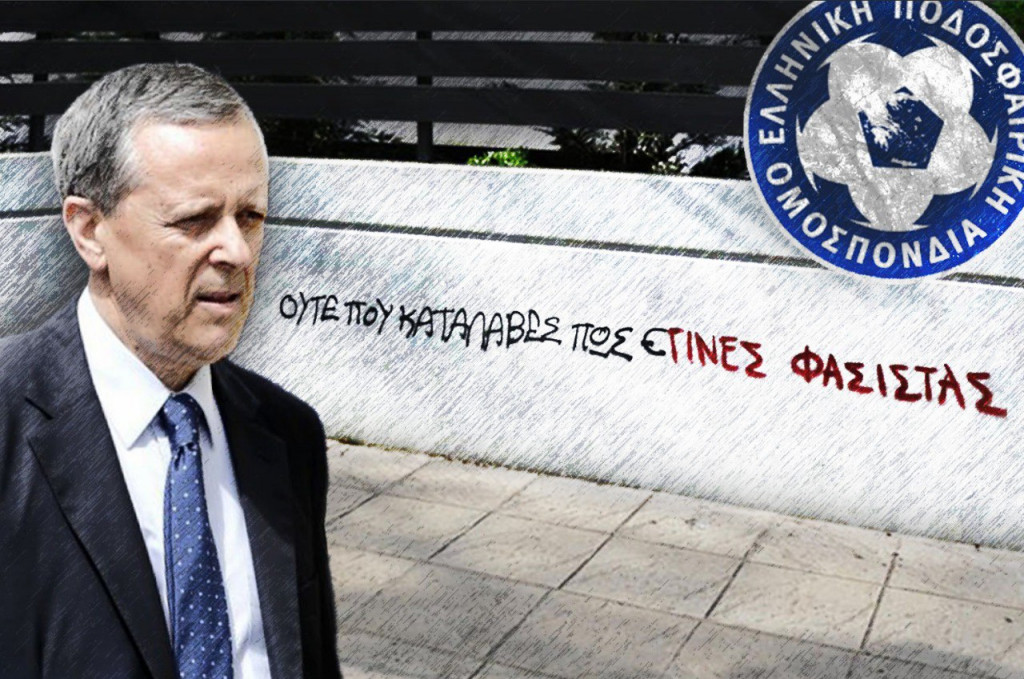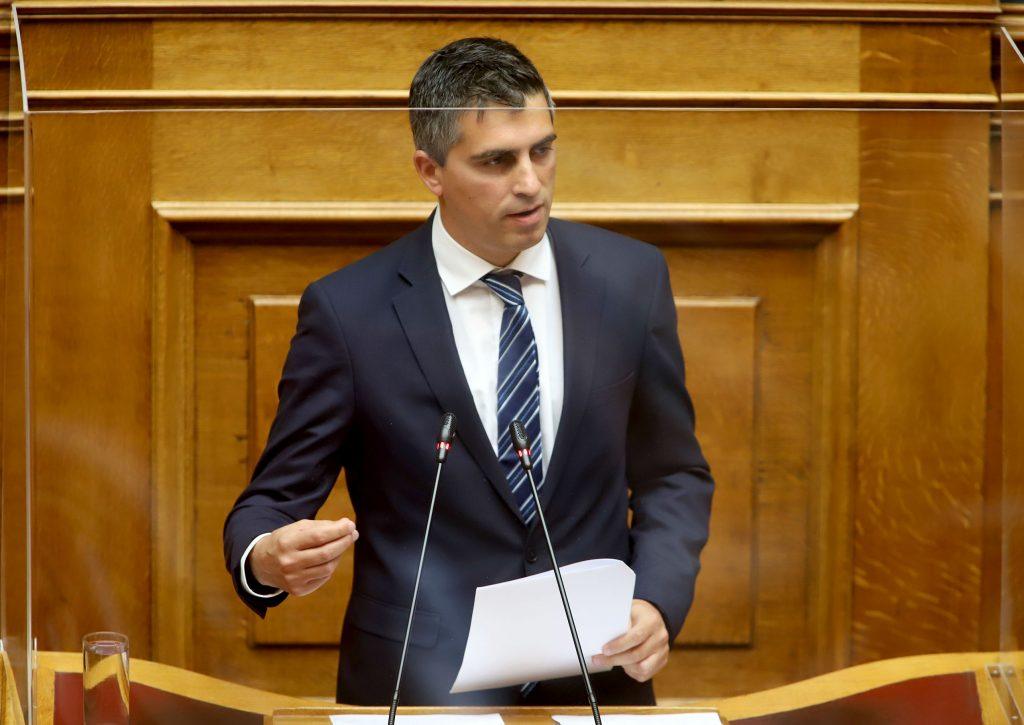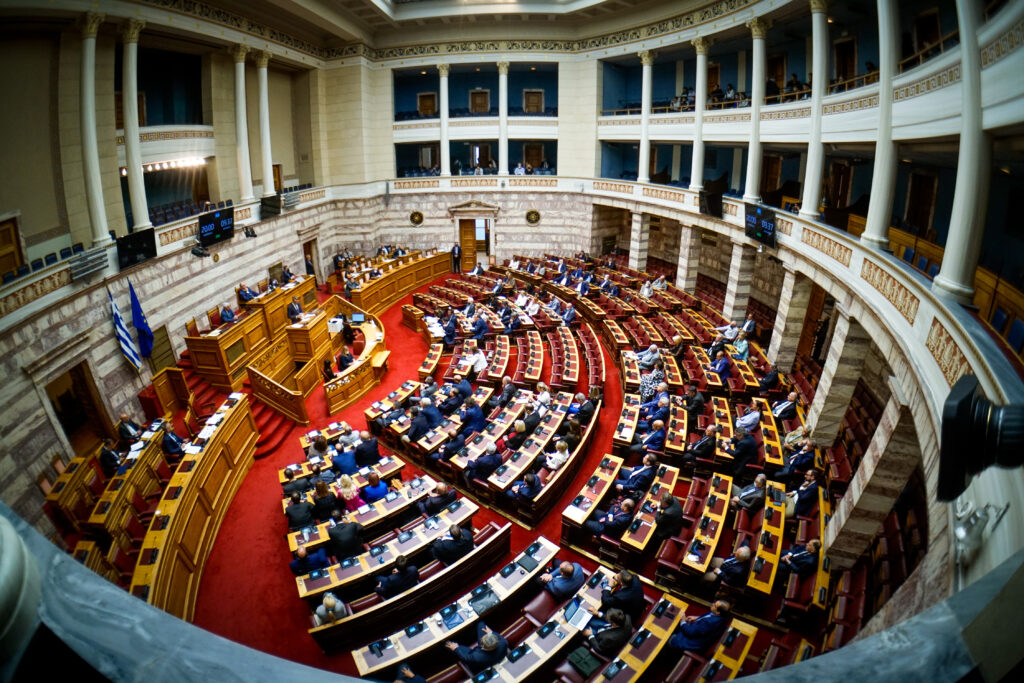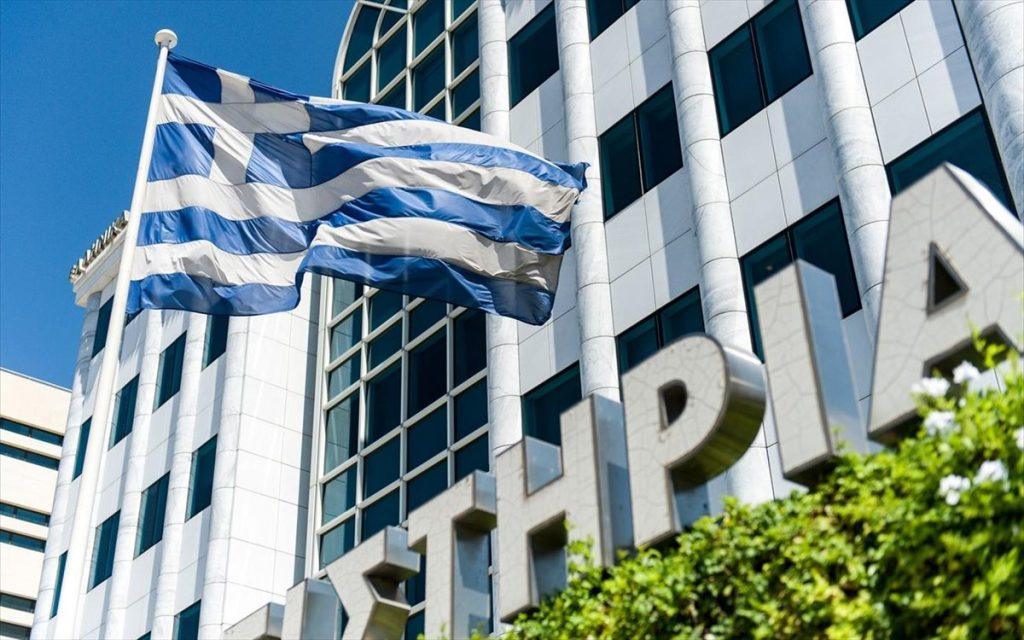For the Hellenic Football Federation’s (EPO) general assembly, the most suitable person to govern Greek professional football is a politician with extreme right-wing leanings.
Greek football has numerous problems. Now, yet another has been added, namely, a politician with far-right views and practices taking over EPO’s helm.
Takis Baltakos may be preparing to “write history” in Greek football, however, as far as Greece’s recent political history is concerned, he’s considered an interlocutor of the neo-Nazi Golden Dawn (Chryssi Avgi) party. To be precise, it was on April 2, 2014, when a leaked video showed a conversation between a then Golden Dawn MP, who was already accused of involvement in a criminal organization, Ilias Kasidiaris, and the then general secretary of the government, Panagiotis (Takis) Baltakos.
In the meeting, Baltakos not only appears talking to Kasidiaris, but essentially questioning if, and to what extent, criminal indictments should have been handed down against Golden Dawn members, including Kasidiaris.
Baltakos is heard claiming “there was no evidence” (for those later convicted in 2020), thus accepting the “narrative” of the Gold Dawn members, which claimed the persecution against them was but a conspiracy.
It was this conversation that led to his ouster from the post of general secretary in the Samaras government, and essentially to his expulsion from New Democracy party, as he failed to persuade that he was merely trying “keep in contact” with the Golden Dawn members.
Besides, intense international reactions accompanied the release of the video.
World Jewish Congress President Ronald Lauder called Baltakos’ case “outrageous,” while the CEO of the American Jewish Committee (AJC), David Harris, said the “…meeting with Golden Dawn is shocking enough by itself, but expressing sympathy for the party — or, in reality, the criminal organization, as the government has declared — is beyond belief.”
Golden Dawn members even referred to a peculiar guidance, by Baltakos, on how to vote in Parliament. In fact, in a message, former MP Panagiotis Iliopoulos, who was later convicted for joining and participating in Golden Dawn, writes about Baltakos: “He’s painted with our colors (believes in the party)”.
Of course, the attempt made to claim that he (Baltakos) “didn’t mean what he was saying” was shattered by the “Fuhrer” of the neo-Nazi organization, Nikos Michaloliakos, who in a Parliament address said he had met Baltakos much earlier, years ago at the offices of the far-right (and later involved in the coup against Archbishop Makarios in Cyprus) EOKA II organization, back in 1973, as well as from other “nationalist struggles”:
“What Baltakos said to my comrade Kasidiaris is true, because he had told me the same things in person. No one knows Baltakos earlier than I do. I met Baltakos as a student in the nationalist struggles in 1973, at the office of EOKA II, which represented Gen. Digenis Grivas, and later in the nationalist movement. (…) It’s characteristic that whenever Takis Baltakos wanted to tell me something, for security reasons, he would tell me to go outside on the balcony, because he was afraid of listening devices and cameras.”
In fact, Golden Dawn previously had a kind word for Takis Baltakos, despite the latter winding up as a New Democracy cadre.
In 2005, shortly after the publication of his book “The End of the Nightmare”, Golden Dawn’s magazine reviewed it in a triumphant manner. The book is cited as a “top of its kind”, one that “shocks you from its first pages”, while in reference to Baltakos, Golden Dawn says he’s “Greek author P.D. Baltakos, who does what all those who deal with ancient Greece should do […] he dispels the miserable notion, which at various times was spread by domestic and foreign persons with inferiority complexes, that renders our ancient ancestors as moving between homosexuality and orgies”.
In fact, one of the topics that Baltakos deals with in his books is the Crypteia of ancient Sparta – a kind of paramilitary organization whose members were subjected to harsh training and who carried out the assassination of Helots at night – as one of the favorites tales of the Golden Dawn, who often praised the Crypteia actions during antiquity as an example for the modern day.
From ‘blocking’ an anti-racism bill to the effort to create a far-right axis
Nevertheless, Takis Baltakos’ far-right practices didn’t merely extend to one of “interlocutor” with Golden Dawn.
Baltakos has been accused by former Minister of Justice Antonis Roupakiotis of “blocking” an anti-racism bill prepared in 2013 by the Ministry of Justice. “While we are ready, literally, to send the draft to the general secretariat of the government, the message from Maximos Mansion government house is: STOP, this anti-racist isn’t passable. […] And it was announced, afterwards, that the government’s secretary general, Mr. Baltakos, and the Minister of State to the Prime Minister, Mr. Stamatis, undertook to draft this bill. Do you know what the result was? This law was passed in 2014, when Pavlos Fyssas had already been murdered.”
Baltakos himself has admitted that he did, in fact, block the bill because he did not want ND voters, who would disagree with the legislation, to leave and head to more right-wing formations.
Of course, Baltakos’ subsequent political course – before turning his sights to professionals football – was, of course, on the margins of the Greek far-right, or, if you will, “to the right of the right”.
In July 2018, he will co-sign a joint statement with expelled, by ANEL party, MP Dimitris Kammenos, announcing “our intention to establish a right-wing party with the further purpose of facilitating the formation of a wider Patriotic Front, so as to avoid the surrender of the name of Macedonia to the Slavs, and on the other hand, to remove from power the left-wing government, which not only proceeded to this sacrilege, but at the same time is an obvious obstacle to the economic development of the country. ”
A few months later, Kammenos and Baltakos will announce the establishment of the “Force of Hellenism” party, as a “truly patriotic party”. The announcement of the establishment of this party will describe that its vision is the recording and transmission of Greek education and the diffusion of Greek culture and Orthodoxy” and that its strategy includes “national independence with existing international cooperation, without the concession of national sovereignty in vital aspects”.
At the same time, the announcement underlined that “our homeland is universal Hellenism and our home is the traditional Greek family. The only hope for working people is rapid economic growth, which is hampered by leftist ideas and practices. The alteration of the Greek people, in terms of population and religion must be interrupted. Macedonia is one and it is Greek” the statement emphasized, among others, in the preamble of the party’s declaration of foundation.
However, this effort for a wider mobilization of the far-right political world will not succeed, and Baltakos will subsequently decide to run as a candidate in the 2019 European Parliament elections with the ANEL party of Panos Kammenos. His participation doesn’t contribute to the electoral strength of the former defense minister’s party, as the 45,148 votes and a percentage of 0.8% will bring the ANEL party to a lowly 15th place among the parties that participated.
The wrong man in the wrong position
Greek football is at a critical juncture. How EPO is managed deals with whether it can regain lost credibility and exit a vicious circle of disrepute. This, in turn, has to do with issues such as the fight against the manipulation of officiating and referees, and the strict enforcement of the disciplinary code.
In this respect, Baltakos’ “previous tenure” fails to give rise to any optimism. As for the disciplinary code, he’s been involved as an attorney for PAOK FC in a case of “multi-ownership” of football clubs. As far as EPO is concerned, it’s not by chance that his statement was that the officiating sector is within EPO’s exclusive sphere, while everyone knows that one of the problems plaguing Greek football is the manipulation of officiating and EPO’s role in this.
However, there is an even bigger issue at hand. Football remains the most popular sport in Greece. It is intensely popular, and at the same time, a venue where people from different social classes and with different social prospects converge; people whose love for the game creates a community.
That’s why football needs to be open, hospitable, and tolerant of “the other”; one able to accommodate Greeks and migrants; the middle class and the working class; people from any part of the political spectrum. That’s why, by its nature, football is a “democratic” sport.
Racism, in particular, is a major threat to football, because partisanship in football often incorporates other “identities”: nationalist or racist views are often expressed through football. However, this is dangerous for the sport itself, as it links it to hazardous divisions within society, and ultimately, into the stands.
That’s why the “No to Racism” campaign has been one of UEFA’s main initiatives for years. This is logical, since it’s extremely important that the most popular sport in the world sends a message that it rejects racism, intolerance and violence.
That’s why it’s clear why Takis Baltakos continues to be the wrong person to lead Greek football to a new era and out of a deep crisis.
The fact that he failed to make any reference, after his election, to the “Holistic Study” for Greek football, although the latter was processed by the international football federations as a “road map” to avoid a football “Grexit”, says volumes about how Baltakos intends to run Greek football. And contrary to what he says, he’s definitely no “sponge”. In all probability we’ll be “spectators to the same old movie”.




































